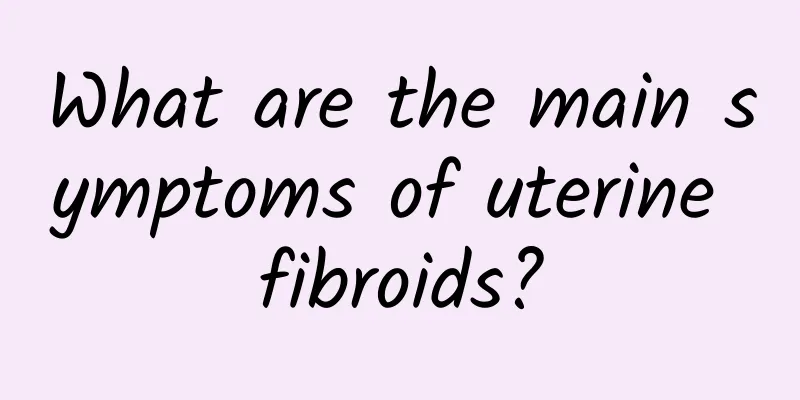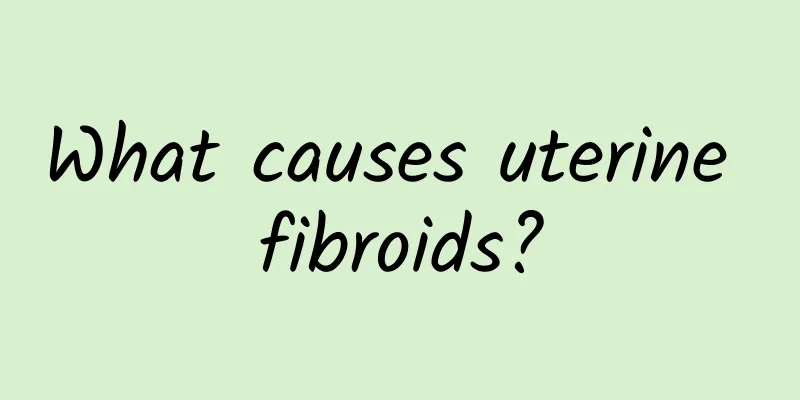What are the main symptoms of uterine fibroids?

|
What are the main symptoms of uterine fibroids? As a common benign tumor in women, early detection of uterine fibroids is of great significance. For female friends, it is very necessary to understand the common symptoms of uterine fibroids. So what are the main symptoms of uterine fibroids? Let our experts introduce them to you in detail. The main symptoms of uterine fibroids are: 1. Pain: Generally, there is no pain symptom. However, when the fibroids undergo red degeneration, or the pedunculated fibroids undergo twisting, or the submucosal fibroids stimulate the uterus to undergo spasmodic contraction, it may cause acute abdominal pain. 2. Anemia: If myoma causes long-term heavy menstruation, it can lead to secondary anemia. In severe cases, it will manifest as general fatigue, pale face, and shortness of breath. Symptoms such as panic.3. Increased vaginal discharge: This is common in larger intramural fibroids. As the uterine cavity enlarges, glandular secretions increase, resulting in increased vaginal discharge. When submucosal fibroids are accompanied by infection, the amount of vaginal discharge is also high and sometimes bloody. 4. Menstrual changes: Menstrual changes are the most common symptoms of uterine fibroids, which are manifested as increased menstrual volume, shortened or prolonged menstrual period, etc., and irregular bleeding may also occur. Submucosal fibroids may cause bleeding due to increased mucosal area and necrosis and infection on the surface. When intramural fibroids are larger, the uterine cavity becomes larger, the endometrial area increases, the uterus contracts poorly, or when combined with excessive endometrial hyperplasia, the menstrual cycle is shortened, the menstrual volume increases, and the menstrual period is prolonged. Subserosal fibroids and small intramural fibroids often have no obvious symptoms. Due to the influence of fibroids, the patient's menopause age often continues to after 50 years old. 5. Compression symptoms: As fibroids grow, they can compress nearby organs and cause various symptoms. For example, uterine wall fibroids or cervical fibroids can compress the bladder, causing frequent urination, urination disorders, and urine retention. Compression of the ureter can lead to hydronephrosis. Uterine posterior wall fibroids can squeeze the rectum and cause difficulty in defecation. The above are the main symptoms of uterine fibroids. I believe you have already understood them. If you have any questions about uterine fibroids, please go to a regular hospital for examination and treatment in time. If you have other questions about uterine fibroids, please consult our online experts or call our consultation phone number, and the experts will give you detailed answers. Fuhe Health Network wishes you a happy day and good health! Uterine fibroids http://www..com.cn/fuke/zgjl/ |
<<: Expert introduction: The harm of uterine fibroids should not be underestimated
>>: What are the main symptoms of irregular menstruation?
Recommend
Surgery can treat vulvar leukoplakia, but patients should be cautious when choosing
The occurrence of vulvar leukoplakia has an impac...
How to prevent dysmenorrhea in women!
Many friends are troubled by dysmenorrhea. How to...
A brief introduction to the causes of cervical hypertrophy
We must understand the causes of cervical hypertr...
Does irregular menstruation affect fertility?
Does irregular menstruation affect fertility? 1. ...
Start simple! 4. High degree of execution of weight loss exercise
"Eat less + exercise more" is the uncha...
What medicine should I use for vulvar itching and leucorrhea that is like tofu dregs?
Vulvar itching and dreg-like leucorrhea are usual...
Hand-fried brown sugar bubble tea? Nutritionist: 3 ways to reduce calories and increase nutrition
It was recently revealed that the brown sugar pea...
What are the advantages of TCM in treating ovarian cysts?
Ovarian cyst is a common gynecological disease. H...
California rolls have over a thousand calories! Higher than Big Mac
Japanese sushi, which consists of white rice and ...
Methods to prevent abortion syndrome
Abortion syndrome is a disease caused by the comb...
Can unmarried people get ovarian cysts? How to treat them?
Due to the lack of understanding of many things i...
TCM syndrome differentiation treatment of vulvar leukoplakia is effective
Xiao Mei is 36 years old. She has had repeated sy...
Excessive weight loss exercise can easily lead to amenorrhea
Amenorrhea patients often have headaches, visual ...
What gynecological examinations should be done before painless abortion?
Experts say that when you find out you are pregna...
Is it okay to take Chinese medicine for cervical hypertrophy?
Cervical hypertrophy can be treated with Chinese ...









